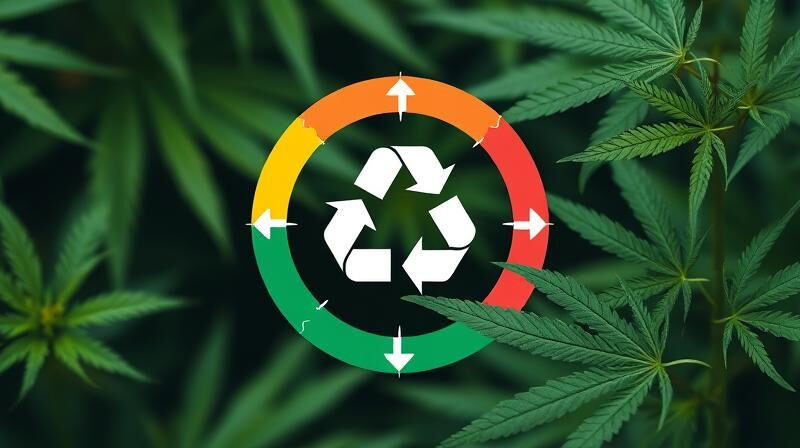Industrial Cannabis, more commonly known as industrial hemp or simply hemp, refers to specific varieties of the Cannabis sativa plant cultivated exclusively for industrial and commercial purposes. Unlike marijuana, which contains high levels of THC (the compound that causes psychotropic effects), industrial hemp contains only negligible amounts of THC, legally defined as 0.8% or less. This makes hemp a non-psychotropic plant with a wide range of practical uses and benefits.
A Culture with Deep Historical Roots
Industrial hemp is one of the earliest cultivated plants in human history, with its origins traced back to Central Asia. For thousands of years, civilizations around the world have recognized the value of hemp for its extraordinary versatility of uses. It has been used for the production of textiles, ropes, paper, food and even traditional medicines. This long-standing cultural significance underscores its value as a sustainable and versatile resource.
The Diverse Uses of Industrial Hemp
One of the most appealing qualities of hemp is its adaptability for producing a wide range of products and materials. It can support multiple industries and is increasingly recognized as a sustainable alternative to traditional materials. Some of the key uses of industrial hemp include:
- Fiber Production: The hemp stalk is processed into strong fibers used for textiles, ropes, paper, and canvas. These fibers are durable, biodegradable, and environmentally friendly. Biofuel: Hemp can be refined to produce biofuel, offering a renewable and sustainable energy source.
- Building Materials: Hemp is used to produce innovative building materials such as hempcrete (a lightweight concrete alternative), thermal insulation and biocomposites. These materials are durable, energy-efficient, and strong.
- Food and Nutrition: Hemp seeds are a highly nutritious food source, rich in protein, omega fatty acids and essential minerals. They are used in food products, oils, and dietary supplements.
- Nutraceuticals: Cannabinoids extracted from hemp, such as CBD (cannabidiol) and CBG (cannabigerol), are widely used in the production of high-value health and wellness supplements.
- Animal Feed: Hemp can serve as a sustainable and nutritious feed option for livestock, providing an alternative to traditional feed sources.
- Cosmetics: Hemp seed oil, extracted from the seeds, is a well-known ingredient in skincare and cosmetic products due to its moisturizing and anti-inflammatory properties.
- Bioplastics: Hemp fibers can be processed into biodegradable plastics, providing an environmentally friendly substitute for traditional petroleum-based plastics.
- Environmental Benefits: Hemp is a fast-growing plant that improves soil health, requires minimal pesticides, and sequesters large amounts of CO2 during growth. It is a valuable tool in the fight against climate change and the promotion of sustainable agriculture.
The Economic and Legal Growth of the Hemp Industry
The global hemp industry has seen rapid expansion in recent years, primarily due to legislative changes and an increased focus on sustainable practices. Many countries, including the United States and members of the European Union, have eased restrictions on hemp cultivation, giving farmers and related industries the opportunity to explore the potential of this plant. The versatility of hemp has made it a key player in industries such as construction, textiles, energy and food.
For farmers, hemp offers a unique opportunity to diversify their crops with a plant that is both profitable and environmentally friendly. For policymakers, supporting hemp cultivation aligns with initiatives that promote renewable resources, sustainable agriculture and climate change mitigation.
The Future of Industrial Hemp
Industrial hemp is more than just a plant; it is a solution to some of the most pressing challenges of our time, including environmental degradation, the need for sustainable materials, and the demand for renewable resources. With its long history, wide range of applications, and environmentally friendly benefits, hemp has the potential to transform industries and contribute to a more sustainable future.
For farmers and policymakers interested in supporting innovation and sustainability, industrial hemp represents a promising path forward. By investing in hemp, we can strengthen rural economies, protect our environment and unlock the full potential of this remarkable plant.



